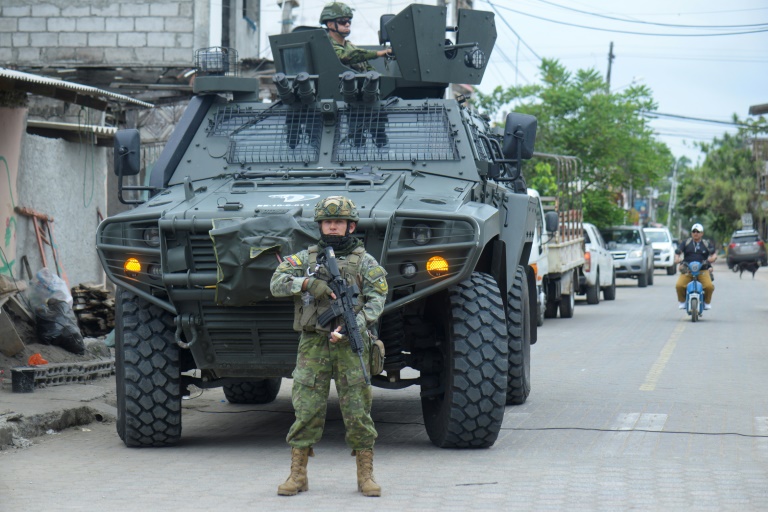Ecuador declares state of emergency in 7 provinces

A state of emergency declaration in Ecuador allows for the deployment of soldiers to help fight surging violence in seven provinces, including Santa Elena
Quito – Ecuador declared a state of emergency in nearly a third of its provinces Wednesday after a surge in violence amid the government’s ongoing “war” on drug gangs.
The measure, which allows for the deployment of soldiers in the street, was announced for a period of 60 days for seven of the country’s 24 provinces, according to a government decree.
The states of Guayas, El Oro, Santa Elena, Manabi, Los Rios, Sucumbios and Orellana have seen a recent increase in “acts of systematic violence perpetrated by organized violence groups, terrorist organizations and non-state belligerent individuals,” said the decree.
President Daniel Noboa had declared a state of emergency in January after a dangerous narco boss — Jose Adolfo Macias, alias “Fito” — escaped from maximum security detention.
As gangsters set off car bombs, kidnapped police and murdered several people in response to Noboa’s promised crackdown, the president declared the country to be in a state of “internal armed conflict” and ordered the army to “neutralize” 22 criminal groups.
The state of emergency expired last month.
Earlier Wednesday, Human Rights Watch urged Noboa to undo the state of “internal armed conflict” still in place, saying it had opened the door to rights abuses.
It reported “multiple instances of serious human rights violations committed by security forces” deployed since it started, also in January.
Long a peaceful haven sandwiched between top cocaine exporters Colombia and Peru, Ecuador has seen violence explode in recent years as rival gangs with links to Mexican and Colombian cartels vie for control.
Gang wars have largely played out in the country’s prisons, where criminal leaders such as Fito wield immense control.
The battles have left hundreds of inmates dead since 2021, their bodies often found dismembered, decapitated or incinerated.
